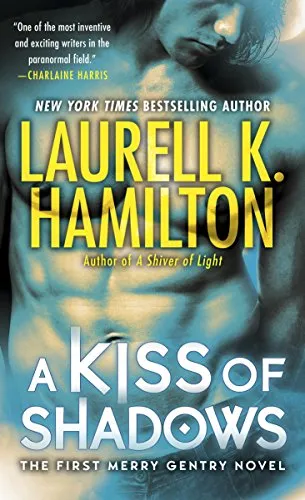
One of the things I always wonder about a lot of the main characters in an urban fantasy series is why they choose to become private investigators, or at least some facsimile of the role. Jim Butcher’s Harry Dresden is a “freelance wizard” who invariably gets either hired by the police to solve a murder or gets tangled up in some grand mystery only he can solve. Rob Thurman’s Cal and Niko (a half-demon and his street samurai Gypsy brother) quit a lucrative private security business to instead become private investigators. Laurell K. Hamilton’s best known character, Anita Blake, is a necromancer who does investigative and crime scene work freelance for the police. And Hamilton’s other established series character, Meredith Gentry, is the niece of Queen Mab of Faerie, and a genuine Faerie Princess, yet works as a private investigator in some dingy office in Los Angeles who (you guessed it) gets occasionally called in by the police to investigate a paranormal crime.
Now I can understand this from the viewpoint of a writer. Looking at it mechanically, it makes sense to have the main character be some sort of investigator, because that’s how you set up a series. You could set up a long story arc and make it a trilogy, but then you’re pretty much done with that character. If you instead drag out those complicated character-deepening story arcs over, say, fifteen books or more, it can be a lot more attractive to a publisher considering that readers of urban fantasy as well as mysteries and the like prefer to stay with the same character, someone they’re familiar with. Making the character an investigator might seem like a throwback to noir and gumshoes like Sam Spade (which might even be part of the draw), but the point seems to be solving the mystery. The primary plot of the series book serves the purpose of mostly expanding the mythology of the created world in urban fantasy through its conflicts and antagonists, while the characters themselves are expanded and deepened by subplots that are resolved within the one story or over the course of several.
It all makes a measure of sense from a writer’s standpoint, but what about from a reader’s? How well justified is the character’s decision to be an investigator? This is one of the problems I had with Meredith Gentry, the primary character of A Kiss of Shadows. With Hamilton’s other character, Anita Blake, you get the sense that she’s an investigator because Necromancers are gently encouraged by the government to use their talents for investigative ends and aiding the police rather than raising zombies and terrorizing the countryside. Gentry on the other hand is a Faerie Princess who’s playing human to avoid responsibility. Considering that this is the first book in Gentry’s series, the pressure is on to set the rules and establish the character so that disbelief will remain firmly in suspension. I kept asking myself why, if she’s so intent on keeping a low profile, she took out an ad in the yellow pages for her business, and why she doesn’t have any problem with using her “talents” as one of the Fae in her investigations.
As a writer, I can definitely see Hamilton’s standard plot formula at work, only accelerated. When the Meredith Gentry series came out, the Anita Blake series was in full swing and its detractors were already clamoring that Hamilton’s writing had fallen from urban fantasy to soft-core vampire porn. Gentry starts off just as prudish as Anita Blake did, but instead of it taking a few books as it did with Blake, by the end of A Kiss of Shadows Gentry is practically wading through half-naked fae men. It’s as if for Hamilton the investigator role has become nothing more than the washing-machine repairman from countless low-budget pornos; a mantle to hang the minimal plot before it’s time for sex.
While I am planning on reusing my protagonist from Lightning Rod in a series, and probably using him in an investigative role, reading Hamilton’s writing if anything shows me what elements of her style I probably shouldn’t use. The primary reason protagonists in urban fantasy series tend to be investigators is that it always falls to them as they are, more often than not, the only ones with the talent necessary to solve the mystery. They could be doing it for money or justice, or just out of a sense of duty, or, as is sometimes the case, coercion. Its these factors that makes the investigator role more subtle, push it toward the original, let it be reinvented for the purposes of the story so that it will be the character instead of the character playing a role.
Posted from my blog with SteemPress : https://vaughndemont.com/2018/08/11/a-kiss-of-shadows-saturday-book-club/